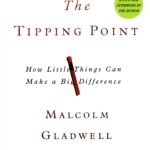A good salesperson understands that there is more to selling than just explaining the offering and taking orders. There is an entire psychology around tapping into a prospect’s conscious and unconscious brain.
One of the first steps is understanding more about the prospect’s personality. Using a DISC profile can greatly assist in that understanding so you know how to approach them when selling your offering.
One such science, which studies how prospects react in predictable ways, is called Behavioral Economics.
One powerful driver that a salesperson can harness is that nobody likes to close a door. We have an innate desire to leave doors open just in case we want to go back through them at a future date.
“What’s in it for me?” or “WIIFM” is all about the person’s self-interest. When you uncover and talk about what is important to the prospect, they are more apt to listen to what you have to say.
Most people can’t pass up a deal even though they may not have an immediate need for it. Here is how to use a prospect’s anchoring bias to get inside their head and make more sales.
Most prospects don’t make decisions by looking at the facts. They make a decision based on emotions and then look for the facts that support their decision.
In fact, a prospect’s emotional state can alter their buying behavior. Recognizing when they are emotionally vulnerable can cause them to be more open to your pitch.
There are four emotional appeals that prospects just can’t help but respond to since they are hard-wired into our brains.
Each prospect is different and responds differently. Some respond to pitches based on urgency. Some are analyzers and need lots of questions answered. Some want to follow the crowd, and yet others are master procrastinators. Creating different messages for each type of customer can be the difference between a sale and no sale.
There are sixteen principles that can you can use to influence a sale.
Additionally, here are six principles that can amplify your ability to close more deals.
Business prospects think quite differently than small business owners or salespeople. Remember that a prospect may have more in-depth knowledge in a specific area in which they work but may not have a good overview of how it fits into the big picture. Therefore, savvy salespersons will recognize the power of creating a vision in their pitch.
When multiple salespersons are vying for a prospect’s business, the salesperson that is most memorable and stands out from the rest often gets the sale.
Everybody, including prospects, is curious. Therefore, nobody can resist a good mystery. Creating a bit of mystery in a sales presentation can create an intense desire in a prospect to solve a riddle and scour your content looking for the answer.
Human nature guides our decisions. People tend to follow patterns and only change when they have to. Understanding a prospect’s motivations is key to making sales.
As Malcolm Gladwell said, “To achieve a word-of-mouth epidemic, a salesperson must blend in with Connectors and Mavens”.
Most salespeople rely on the spoken word and on visuals alone during their sales pitch. However, there are three other untapped senses that, if incorporated into the pitch, can do wonders to close more deals.
Salespersons may say and do everything right but still lose the sale because their face gives off unconscious messages.
Selling to a business is very different from selling to an individual consumer. Business prospects don’t spend their own money and are what I call complex sales. Therefore, it is vital to understand how each of their journeys is different.
Here is why selling to a business is different.
Prospects, in general, see a loss of money or opportunity different than potential gains in what is known as Prospect Theory. Fear Aversion is something businesses need to understand and know how to respond to them.
Business prospects are far more likely to focus on the downside of a decision and far more apt to defer or avoid decisions than individual consumers. Here is why.
Moreover, when the customer of a business with employees does not feel that they were properly attended to by front-line employees, the customer is more likely to seek revenge. While the customer thinks that their revenge efforts are directed at a specific employee, in fact, the owner/operator is often the one that receives the pain.
If after your best efforts, the prospect is still on the fence, there may be some deep emotional reasons that are preventing them from buying. Here are six ways to intensify your offer that might be just enough to get them unstuck and ready to buy.
Everyone lies, especially in sales situations, the only question is the degree to which one lies. Lying in business situations is particularly common so a good entrepreneur needs to be able to be a human lie detector to know how to tell if someone is lying.
.




























